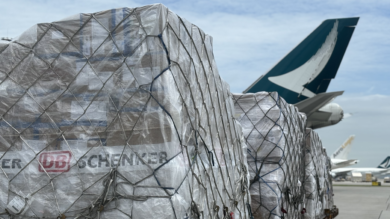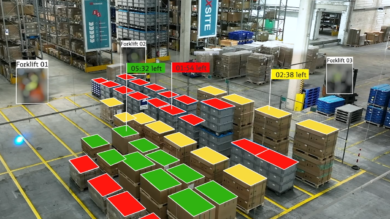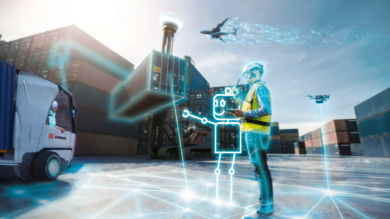In a world where climate change is becoming already reality, the logistics industry is facing major challenges. Emissions from traffic and transport are a major contributor to global warming, making it increasingly urgent to find sustainable solutions to reduce the environmental footprint.
Supply chains play a critical role beyond just moving goods. They influences everything from how products are made to how they’re delivered, impacting the environment along the way. By implementing sustainable practices throughout the chains, companies can significantly contribute to environmental protection.
The Importance of Emissions in the Supply Chain
The supply chain encompasses all the steps required to move a product from the raw material to the end consumer. This process generates emissions in the form of greenhouse gases that contribute to climate change. According to the World Economic Forum, supply chains account for around 90% of greenhouse gas emissions in the global economy.
In 2021, the European Commission adopted a comprehensive package to promote sustainable activities in the EU. The CSRD (Corporate Sustainability Reporting Directive), which will come into force in 2023, requires companies to disclose credible and comparable sustainability information. A non compliance can result into severe penalties.
From Theory to Practice: DB SCHENKER & NxtLog
But how can logistics companies like DB SCHENKER reduce their emissions while maintaining efficient supply chains? DB SCHENKER is also affected by these requirements and has found a holistic solution with NxtLog.
NxtLog is a spin-off of Schenker Ventures, the Venture building arm of DB SCHENKER.
It is an application for companies with a supply chain orchestrated by various LSPs to measure, report and reduce logistical emissions, indifferent of the used transport mode and country of operations. The tool automatically cleans logistical data, such as origin and destination location, and conducts various other clean tasks. Furthermore, it offers a plausibility check for the shared route. Afterwards, it measures emissions. As a result, NxtLog enables emission visibility and mitigation strategies to make the transport of goods more efficient.
“Digitalization is making great strides in sustainable logistics, and with NxtLog’s technology we are reaching a milestone in making sustainability measurable and providing customers with a sustainable overview of their transport.”
The start-up uses the knowledge of DB SCHENKER but is an independent company and offers its service LSP and transport mode agnostic that adheres to high data protection standards.
“With NxtLog, customers can now measure, document, and reduce their emissions – across all modes of transportation and logistics providers used – all with increased data quality. Reducing time do so from days to minutes.”
NxtLog uses powerful algorithms that can calculate emissions along the supply chain.
The modern web application makes them easy and quick to access. The KPIs can then be used to develop tailored measures and strategies to reduce emissions. The reports can be customized, exported, and filtered for presentation to various stakeholders. Customers can follow their CO2 Emissions via the whole transport process. Every step in the delivery will be reported via the system.
Published: June 2024










